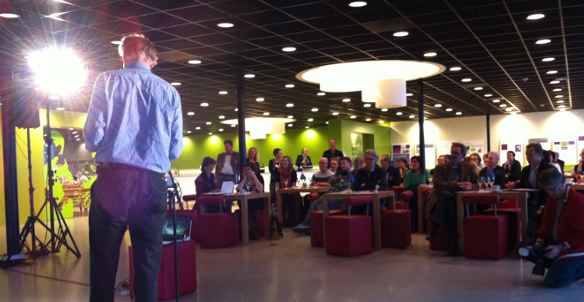Brilliant way to monetize, and effective way to introduce the new Kindle Singles.
Today, we’re thrilled to announce the launch of TED Books, an imprint of short nonfiction works designed for digital distribution. Shorter than traditional books, TED Books run less than 20,000 words each — long enough to explain a powerful idea, but short enough to be read in a single sitting. Books are available on the Kindle and Kindle Reader apps, and cost $2.99 each.
Nic Marks: The Happiness Manifesto: How Nations and People Can Nurture Well-Being
Juan Enriquez and Steve Gullans: Homo Evolutis: Please Meet the Next Human Species
Gever Tulley: Beware Dangerism! Why We Worry About the Wrong Things, and What It’s Doing to Our Kids
TED Books are launching as part of Amazon’s brand-new Kindle Singles imprint. (Read their press release.) As Amazon told us: “Our goal with Singles is to allow compelling ideas to be expressed at their natural length. TEDBooks fit nicely within that mission,” said Russ Grandinetti, vice president of Kindle Content. “TED has a great history of bringing important ideas to a wider audience, and we expect TEDB ooks will add to that legacy.”


